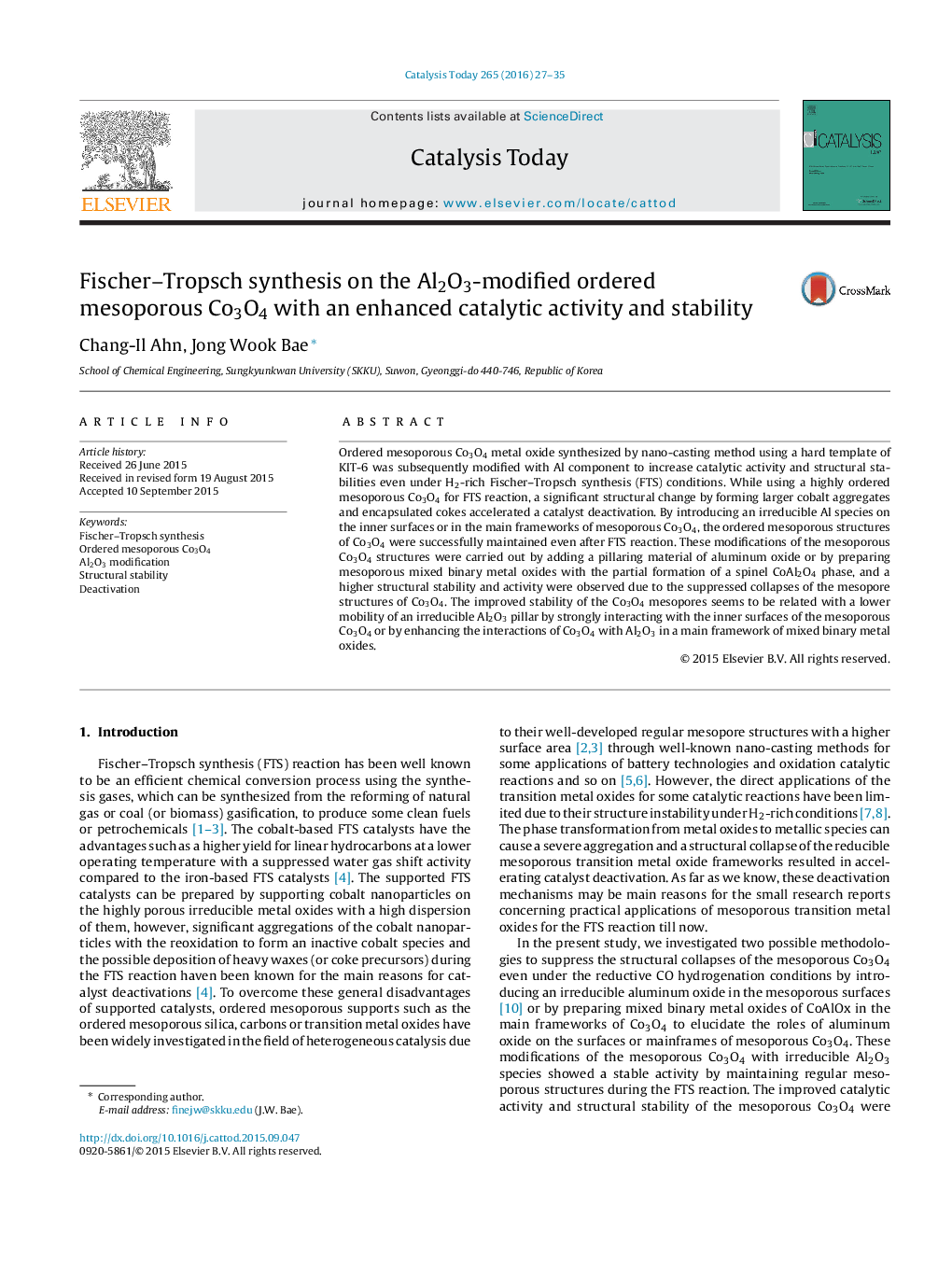| Article ID | Journal | Published Year | Pages | File Type |
|---|---|---|---|---|
| 53782 | Catalysis Today | 2016 | 9 Pages |
•Ordered mesoporous Co3O4 modified with Al2O3 was tested for FTS reaction.•Catalytic activity and stability were improved with the addition of irreducible Al2O3 species on the meso-Co3O4.•Improved stability of the Al-modified meso-Co3O4 was mainly due to strongly interacted Al2O3 with Co3O4.
Ordered mesoporous Co3O4 metal oxide synthesized by nano-casting method using a hard template of KIT-6 was subsequently modified with Al component to increase catalytic activity and structural stabilities even under H2-rich Fischer–Tropsch synthesis (FTS) conditions. While using a highly ordered mesoporous Co3O4 for FTS reaction, a significant structural change by forming larger cobalt aggregates and encapsulated cokes accelerated a catalyst deactivation. By introducing an irreducible Al species on the inner surfaces or in the main frameworks of mesoporous Co3O4, the ordered mesoporous structures of Co3O4 were successfully maintained even after FTS reaction. These modifications of the mesoporous Co3O4 structures were carried out by adding a pillaring material of aluminum oxide or by preparing mesoporous mixed binary metal oxides with the partial formation of a spinel CoAl2O4 phase, and a higher structural stability and activity were observed due to the suppressed collapses of the mesopore structures of Co3O4. The improved stability of the Co3O4 mesopores seems to be related with a lower mobility of an irreducible Al2O3 pillar by strongly interacting with the inner surfaces of the mesoporous Co3O4 or by enhancing the interactions of Co3O4 with Al2O3 in a main framework of mixed binary metal oxides.
Graphical abstractFigure optionsDownload full-size imageDownload high-quality image (172 K)Download as PowerPoint slide
